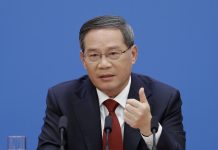HONG KONG: Despite challenges brought about by the COVID-19 pandemic and external uncertainties, Hong Kong remains a leading financial center in the world, with fresh opportunities ahead to lift its global status.
Hong Kong secured a third place in the latest Global Financial Centers Index, remaining among the top in areas including business environment, human capital, infrastructure and general reputation, according to the index compiled by British think tank Z/Yen Group and the China Development Institute in Shenzhen.
Since Hong Kong’s return to the motherland in 1997, its financial market has evolved both in scale and openness, with remarkable progress made in the banking system, capital market, as well as the foreign exchange market.
A set of data from the Hong Kong Monetary Authority (HKMA) exemplify how rapidly Hong Kong’s financial market has developed over the past 25 years:
Combined assets of the banking system totaled 27 trillion Hong Kong dollars (about 3.4 trillion U.S. dollars) in April 2022, more than tripling the size in July 1997. The stock market was valued at 38 trillion Hong Kong dollars by May 2022, as compared with only 4.6 trillion Hong Kong dollars in July 1997.Last year, around 400 billion U.S. dollars worth of bonds were issued, as compared with less than 20 billion U.S. dollars in 1997.
In addition to expansion in scale, Hong Kong’s financial market has played a crucial role in connecting the fast-developing capital market on the mainland to global investors, with turnover of the stock and bond connect programs expanding steadily since their launch.
“Hong Kong’s status as a global financial center has been enhanced and become more steady over the past 25 years, while its role as a bridge between the mainland and the rest of the world has become more prominent,” said HKMA chief executive Eddie Yue. While progress has been made, it’s not always plain sailing. The financial market in Hong Kong has weathered multiple crises, including the 1997 Asian financial crisis, the 2003 SARS outbreak, the 2008 global financial tsunami, the 2019 chaos and riots undermining the city’s economy, as well as the ongoing COVID-19 pandemic.
The secret behind the market’s stability, despite these challenges, lies in the confidence from global investors, which arises from the market’s ability to buffer against shocks, Yue said.
The foreign exchange reserves in Hong Kong grew from some 80 billion U.S. dollars in July 1997 to more than 460 billion U.S. dollars in May 2022, a large number relative to the size of the economy and its monetary supply, he said.
The banking system also maintains low risk, with capital adequacy ratio of banks averaging at over 20 percent, while the ratio of non-performing loans stood less than 1 percent, indicating lower risks than some major financial markets in the world, Yue noted. –Agencies





